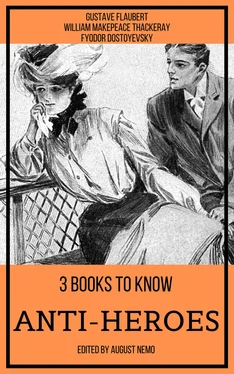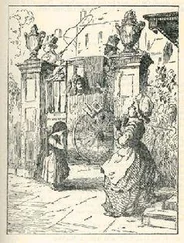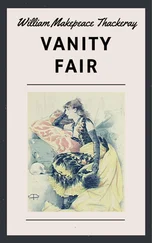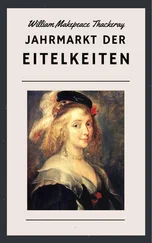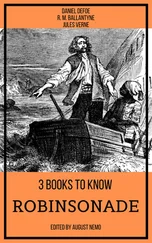When my affair with Lord George happened, and it became necessary to me, for the reasons I have stated, to be out of the way; now, thought I, is the time to make my peace with my good mother: she will never refuse me an asylum now that I seem in distress. So sending to her a notice that I was coming, that I had had a duel which had brought me into trouble, and required I should go into hiding, I followed my messenger half-an-hour afterwards: and, I warrant me, there was no want of a good reception, for presently, being introduced into an empty room by the barefooted maid who waited upon Mrs. Barry, the door was opened, and the poor mother flung herself into my arms with a scream, and with transports of joy which I shall not attempt to describe—they are but to be comprehended by women who have held in their arms an only child after a twelve years’ absence from him.
The Reverend Mr. Jowls, my mother’s director, was the only person to whom the door of her habitation was opened during my sojourn; and he would take no denial. He mixed for himself a glass of rum-punch, which he seemed in the habit of drinking at my good mother’s charge, groaned aloud, and forthwith began reading me a lecture upon the sinfulness of my past courses, and especially of the last horrible action I had been committing.
‘Sinful!’ said my mother, bristling up when her son was attacked; ‘sure we’re all sinners; and it’s you, Mr. Jowls, who have given me the inexpressible blessing to let me know THAT. But how else would you have had the poor child behave?’
‘I would have had the gentleman avoid the drink, and the quarrel, and this wicked duel altogether,’ answered the clergyman.
But my mother cut him short, by saying such sort of conduct might be very well in a person of his cloth and his birth, but it neither became a Brady nor a Barry. In fact, she was quite delighted with the thought that I had pinked an English marquis’s son in a duel; and so, to console her, I told her of a score more in which I had been engaged, and of some of which I have already informed the reader.
As my late antagonist was in no sort of danger when I spread that report of his perilous situation, there was no particular call that my hiding should be very close. But the widow did not know the fact as well as I did: and caused her house to be barricaded, and Becky, her barefooted serving-wench, to be a perpetual sentinel to give alarm, lest the officers should be in search of me.
The only person I expected, however, was my cousin Ulick, who was to bring me the welcome intelligence of Lady Lyndon’s arrival; and I own, after two days’ close confinement at Bray, in which I narrated all the adventures of my life to my mother, and succeeded in making her accept the dresses she had formerly refused, and a considerable addition to her income which I was glad to make, I was very glad when I saw that reprobate Ulick Brady, as my mother called him, ride up to the door in my carriage with the welcome intelligence for my mother, that the young lord was out of danger; and for me, that the Countess of Lyndon had arrived in Dublin.
‘And I wish, Redmond, that the young gentleman had been in danger a little longer,’ said the widow, her eyes filling with tears, ‘and you’d have stayed so much the more with your poor old mother.’ But I dried her tears, embracing her warmly, and promised to see her often; and hinted I would have, mayhap, a house of my own and a noble daughter to welcome her.
‘Who is she, Redmond dear?’ said the old lady.
‘One of the noblest and richest women in the empire, mother,’ answered I. ‘No mere Brady this time,’ I added, laughing: with which hopes I left Mrs. Barry in the best of tempers.
No man can bear less malice than I do; and, when I have once carried my point, I am one of the most placable creatures in the world. I was a week in Dublin before I thought it necessary to quit that capital. I had become quite reconciled to my rival in that time; made a point of calling at his lodgings, and speedily became an intimate consoler of his bed-side. He had a gentleman to whom I did not neglect to be civil, and towards whom I ordered my people to be particular in their attentions; for I was naturally anxious to learn what my Lord George’s position with the lady of Castle Lyndon had really been, whether other suitors were about the widow, and how she would bear the news of his wound.
The young nobleman himself enlightened me somewhat upon the subjects I was most desirous to inquire into.
‘Chevalier,’ said he to me one morning when I went to pay him my compliments, ‘I find you are an old acquaintance with my kinswoman, the Countess of Lyndon. She writes me a page of abuse of you in a letter here; and the strange part of the story is this, that one day when there was talk about you at Castle Lyndon, and the splendid equipage you were exhibiting in Dublin, the fair widow vowed and protested she never had heard of you.
‘“Oh yes, mamma,” said the little Bullingdon, “the tall dark man at Spa with the cast in his eye, who used to make my governor tipsy and sent me the sword: his name is Mr. Barry.”
‘But my Lady ordered the boy out of the room, and persisted in knowing nothing about you.’
‘And are you a kinsman and acquaintance of my Lady Lyndon, my Lord?’ said I, in a tone of grave surprise.
‘Yes, indeed,’ answered the young gentleman. ‘I left her house but to get this ugly wound from you. And it came at a most unlucky time too.’
‘Why more unlucky now than at another moment?’
‘Why, look you, Chevalier, I think the widow was not unpartial to me. I think I might have induced her to make our connection a little closer: and faith, though she is older than I am, she is the richest party now in England.’
‘My Lord George,’ said I, ‘will you let me ask you a frank but an odd question?—will you show me her letters?’
‘Indeed I’ll do no such thing,’ replied he, in a rage.
‘Nay, don’t be angry. If I show you letters of Lady Lyndon’s to me, will you let me see hers to you?’
‘What, in Heaven’s name, do you mean, Mr. Barry?’ said the young gentleman.
‘I mean that I passionately loved Lady Lyndon. I mean that I am a—that I rather was not indifferent to her. I mean that I love her to distraction at this present moment, and will die myself, or kill the man who possesses her before me.’
‘YOU marry the greatest heiress and the noblest blood in England?’ said Lord George haughtily.
‘There’s no nobler blood in Europe than mine,’ answered I: ‘and I tell you I don’t know whether to hope or not. But this I know, that there were days in which, poor as I am, the great heiress did not disdain to look down upon my poverty: and that any man who marries her passes over my dead body to do it. It’s lucky for you,’ I added gloomily, ‘that on the occasion of my engagement with you, I did not know what were your views regarding my Lady Lyndon. My poor boy, you are a lad of courage and I love you. Mine is the first sword in Europe, and you would have been lying in a narrower bed than that you now occupy.’
‘Boy!’ said Lord George: ‘I am not four years younger than you are.’
‘You are forty years younger than I am in experience. I have passed through every grade of life. With my own skill and daring I have made my own fortune. I have been in fourteen pitched battles as a private soldier, and have been twenty-three times on the ground, and never was touched but once; and that was by the sword of a French maitre-d’armes, Whom I killed. I started in life at seventeen, a beggar, and am now at seven-and-twenty, with twenty thousand guineas. Do you suppose a man of my courage and energy can’t attain anything that he dares, and that having claims upon the widow, I will not press them?’
Читать дальше
